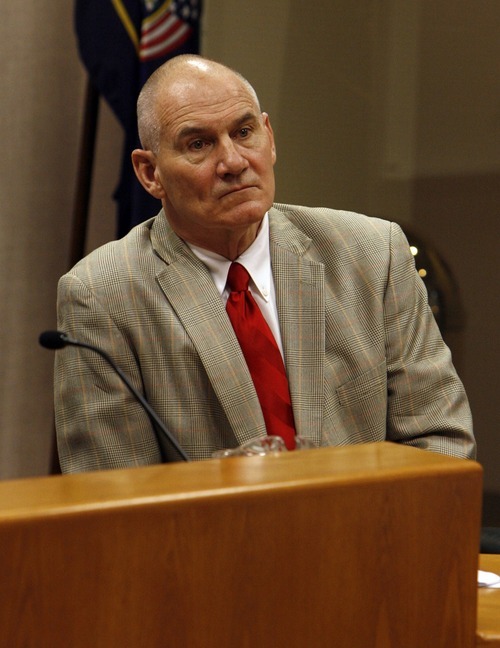This is an archived article that was published on sltrib.com in 2011, and information in the article may be outdated. It is provided only for personal research purposes and may not be reprinted.
Legislative auditors blame a weak board for failing to rein in a liquor-control department that rigged bids and falsified financial reports for as long as 20 years, actions that have put the agency under a cloud of suspicion.
Acting department head Francine Giani, who was recently appointed by the governor to restore order, told a legislative committee Wednesday that part of the culture at the Utah Department of Alcoholic Beverage Control (DABC) stemmed from "people never retiring — or when they did, they came back."
As the committee was presented with a legislative audit detailing manipulated contracts and unethical behavior by senior DABC managers and recommending a criminal investigation of former director Dennis Kellen, Giani detailed steps she is taking to clean house.
On Wednesday, she fired the department's finance director, Leonard Langford. A second employee also has been terminated, a third demoted and Deputy Director John Freeman has resigned. Several retirements are expected soon.
In 2006, an audit found that Kellen and several other managers had been allowed to retire, work part time for six months then immediately return to full-time employment. One of the last acts of the board at the time was to appoint Kellen, then deputy director, as executive director — without conducting a search for the post.
Auditors in their latest report have said state prosecutors should investigate Kellen for possible felony charges, stemming from the more than $300,000 the department paid in products, equipment and services provided by the Woods Cross-based company Flexpak, owned by Kellen's son.
This summer, Gov. Gary Herbert asked for the resignation of Kellen, who worked for the department since 1975, amid allegations of what the governor called "serious violations" of state procurement law.
Ken Wynn, who retired in 2007 after serving 30 years as DABC executive director, said bids were not rigged nor were financial reports altered during his tenure — and he challenged auditors to produce evidence that the practice went back more than 20 years as they alleged in their report.
On Wednesday, Giani told the legislative Business and Labor Interim Committee that the liquor-control board has a structure that is distinctive — and problematic. Instead of managers answering directly to the governor, as do most boards and commissions, senior staffers are responsible only to the five-member, part-time liquor commission.
Auditors agreed that the board's oversight weaknesses comes from its makeup. The part-time commission, which usually meets once a month, is responsible for establishing general policies, as well as overseeing day-to-day department operations.
Board chairman Richard Sperry, a recent appointee by the governor, was out of town and could not be reached for comment. But this summer, he acknowledged that the part-time citizen commission must rely on managers for information. He made the comments during a legislative hearing on a bankrupt liquor outlet in Eden, which resulted in more than $300,000 in unpaid bills. Senior managers had failed to notify commissioners of losses for nearly two years.
Auditors are scheduled to meet with liquor commissioners on Tuesdayto discuss the report.
In the audience on Wednesday was former liquor board chairman Sam Granato, who was one of several sources who telephoned the governor about concerns over the department's business dealings.
Granato was chairman of the liquor commission from 2007 to 2011, overseeing the department when Kellen was director. In the fall of 2007, Kellen denied that his department had been doing business with Flexpak, according to Granato.
"Did I believe Dennis — yes," said Granato. "Should I have believed him? No."
Twitter@DawnHouseTrib —
Audit report
The Alcoholic Beverage Control Commission should be restructured, says a report released this week. Auditors suggest:
Reducing responsibilities the five-member board has over day-to-day department operations.
Moving authority from the board to the governor to appoint the department executive director.
Changing the part-time commission to a full-time board.



